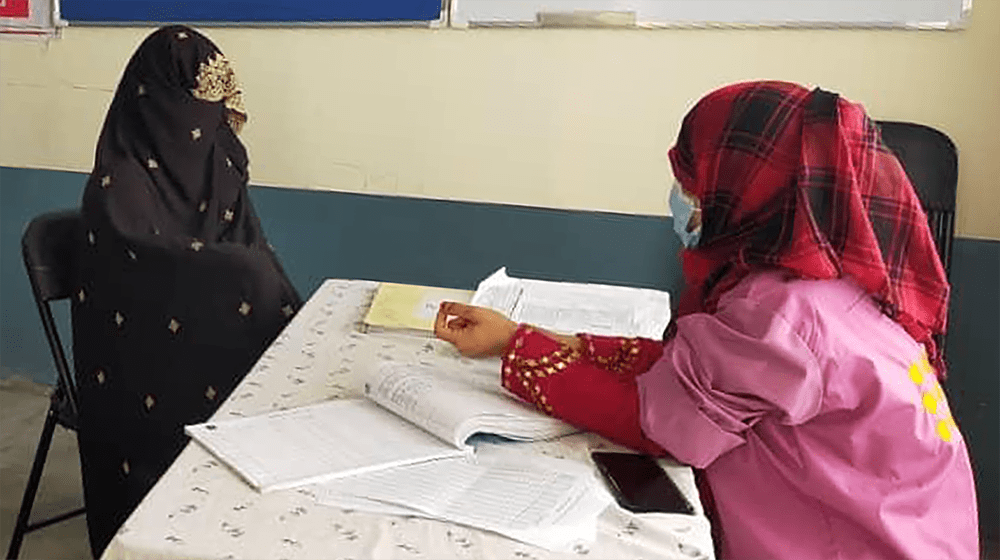Helmand, Afghanistan – Neither Malalai nor her husband, who is a farmer and the family breadwinner, considered spacing between childbirths, which is why she gave birth for four consecutive years, leaving her in a vulnerable health condition.
The 22-year-old Malalai’s first three childbirths happened at home, where she faced complications, particularly a retained placenta. The medical care she sought after suffering severe pain and bleeding “was costing my family,” she said.
However, her last delivery at the Family Health House (FHH), unlike the previous three deliveries, was a distinct experience for her this time.
A few months before her fourth delivery, Malalai and her mother-in-law went to the FHH within their village in Garmsir district. “I was frightened that this time, as the last three, my delivery will have complications. I was very skinny, and weak,” she expressed. “My mother-in-law feared that I might die. So we insisted to see a medical expert.”
Malalai continued to visit the FHH until she gave birth. “The FHH was nearby and free of cost. I met the midwife on a bi-weekly basis,” she stated. “The midwife’s behavior and manners were also a factor why I was confident to see her.”
The midwife, Rihana, was in the FHH to facilitate the childbirth when Malalai was taken by her mother-in-law for her fourth childbirth. Her labor did not take long.
“It was a normal delivery and Malalai’s child was healthy. However, after the delivery, I realized that she has the retained placenta complication,” Raihan recalled. Malalai needed to take a dose of oxytocin. Soon after, the complication was resolved and both mother and child were healthy.
Weeks after Malalai’s successful delivery, she returned to the FHH, this time with her pregnant sister-in-law. Recalling her easy and healthy labor, Malalai recommended going to the FHH, which supported by UNFPA with funding from the Government of Japan.
“The sister-in-law worried about her pregnancy. I told her about my experience of giving birth to my fourth child with the help of a midwife,” Malalai shared.
She told her sister-in-law about the pleasant experience of women who had given birth at the FHH as against home delivery. “My sister-in-law agreed, and we went to the clinic (FHH),” Malalai said. “She promised to continue visiting the FHH for antenatal care until she delivers.”




